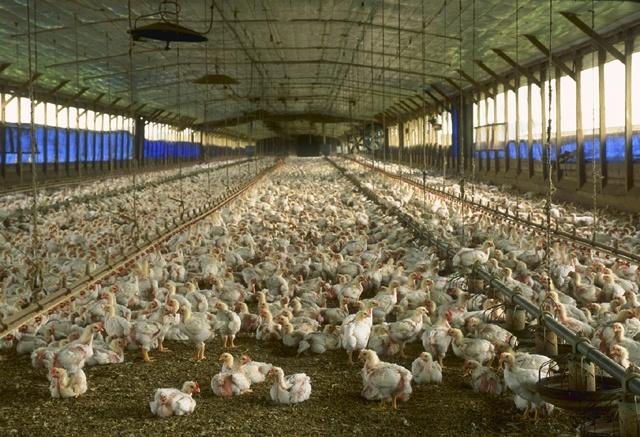
Last October we reported on the Foster Farms samonella outbreak that was sickening hundreds of people across the country. A particularly virulent strain of drug-resistant salmonella, S. Heidelberg, had been found in several batches of its product, causing recalls in numerous states. As many as one-third of the consumers who were diagnosed with salmonella were hospitalized. Cases are still being identified.
On Jan. 13, a consortium of 30 consumer, animal welfare and environmental organizations stepped forward to urge Foster Farms to report on the antibiotics that are being used in its factories. The group has drafted a letter calling on the company to:
- Publish a detailed description of the antibiotics the company uses to raise chickens;
- Commit to using antibiotics responsibly.
- Verify progress through audits by an impartial third party.
The organizations, which include the National Resources Defense Council, Center on Race, Poverty and the Environment, Consumers Union, the American Society for the Prevention of Cruelty to Animals, Physicians for Social Responsibility and many others have also urged Foster Farms to reserve antibiotics for "treating sick animals, or in rare cases, to control disease outbreaks," stating that "they should not be used for routine disease prevention or growth promotion." It also has appealed to Foster Farms to step up its improvements to its husbandry and living conditions, noting that doing so "can reduce or eliminate the need for non-therapeutic use of antibiotics. Medically important antibiotics should only be used for treating sick animals."
The NRDC maintains that the factory conditions may be a key reason why Foster Farms continues to experience the increased need for antibiotics. In turn, drug resistance is becoming more prevalent in the poultry and making it harder to treat outbreaks.
"More than 80 percent of all antibiotics sales in the United States are purchased for raising livestock," says the NRDC. "When antibiotics are used repeatedly to speed animal growth or prevent disease in crowded, unsanitary feedlots or barns, some bacteria survive, become drug resistant and spread. Drug resistant bacteria can lead to longer illnesses, more hospitalizations, the use of drugs with greater side effects, and treatment failure."
The Centers for Disease Control and Prevention estimate that at least half of the antibiotics that are used in animals "is unnecessary and inappropriate and makes everyone less safe."
Foster Farms has yet to respond to the letter. Earlier this month, inspectors found a large infestation of cockroaches and "egregious unsanitary conditions" in the Livingston, Calif. plant. The USDA ordered the plant temporarily closed for a thorough cleansing.
Image of chicken house courtesy of the USDA.
Jan Lee is a former news editor and award-winning editorial writer whose non-fiction and fiction have been published in the U.S., Canada, Mexico, the U.K. and Australia. Her articles and posts can be found on TriplePundit, JustMeans, and her blog, The Multicultural Jew, as well as other publications. She currently splits her residence between the city of Vancouver, British Columbia and the rural farmlands of Idaho.














